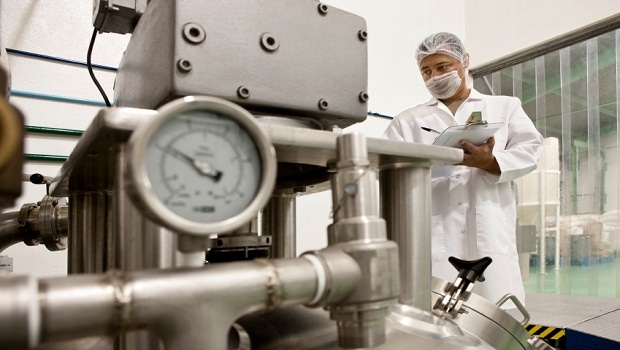Supplier Verification Programs Increase GMP Compliance
December 13, 2013

The Food Safety Modernization Act (FSMA) was established in 2011 as a preventive measure against food adulteration and contamination. Although FSMA is two years old, the industry is just starting to fully bear the obligations of it with the new amendments. As FDA requirements and GMP (good manufacturing practice) inspections become more strict, finished product manufacturers will have to ramp up their surveillance and understanding of their supply chain. It is especially important because not all suppliers function on the same level. A suppliers resources can limit its capabilities, which in turn can affect the quality of products and services it can provide its customers. Smaller organizations cannot match a larger organizations financial resources in terms of purchasing the necessary capital, adequately maintaining facilities, and implementing the necessary programs to maintain GMPs and compliance to quality. To ramp up surveillance and understanding of the supply chain, supplement brand owners must determine which suppliers are able fulfill the requirements of FSMA and its continually changing regulations.
Require Suppliers to Provide thorough Product and Process Studies
Testing incoming raw materials as well as products during manufacturing can help guarantee the current product is safe. Although a product may have been sterilized, it does not necessarily mean it was done so correctly. Pathogens may have not been fully reduced, active compounds may have deviated from requirements, etc. Suppliers should confirm the treatment utilized provided the maximum kill and minimum deterioration of the desired attributes by providing thorough evidence of process validations and product stability studies. These verifications, along with retesting every now and then, can help a finished product manufacturer ensure that the product they purchase is safe in terms of pathogens, consistency, uniformity and stability. A good alternative for organizations unable to conduct in-house studies is to use a supplier that is certified by a recognized third party, such as the SQF (safe quality food) certification by NSF International.
Audit Suppliers Facilities
Visiting the operations that supplies your ingredients helps guarantees future product is safe. Currently, a majority of companies rely on documentation to support their vendor qualification programswhich is not necessarily a bad thingbut audits are essential to fully grasp a vendors capabilities, qualifications, etc. Because of FSMA, a piece of paper will no longer have the same assurances it once had that the processes and/or products are safe and follow HACCP (hazard analysis and critical control points ). Documentation guarantees the current material is safe, but it does not guarantee it will be on a consistent basis. Visiting a vendor site to witness its infrastructure, equipment, processes, etc., helps finished product manufacturers identify imminent dangers, future risks and whether or not their suppliers commitment to quality is sufficient.
Choose Suppliers with Verification Programs
Partnering with suppliers that have an established and proven supplier verification program is the most important step because it guarantees the safety of both current and future product. Quality product always starts from the origin; if youre not receiving quality product from the beginning, then the rest of the steps are irrelevant. In July, FDA issued a proposed regulation known as the Foreign Supplier Verification Program (FSVP) that makes this step a requirement. Under the FSVP, food importers must guarantee that food (including dietary supplements and dietary supplement ingredients) imported into the United States meet the same conditions as domestic food. This proposed regulation extends FDAs preventative measures against food adulteration and contamination beyond just our borders; it places these measures down the supply chain.
The FSVP is an extensive regulation that includes various measures:
Compliance status review
Verification activities
Corrective actions
Periodic reassessment
Importer identification
Recordkeeping
The criteria of each measure depend on the type of food, the risks associated with the food, the importer, etc. A good approach for finished product manufacturers to ensure their suppliers will be able to meet the FSVP conditions is to partner with suppliers that already have well-established supplier verification programs in place.
Another approach for finished product manufacturers to ensure their suppliers will be able to meet the FSVP conditions is to partner with suppliers that have achieved global food safety initiative (GFSI)-recognized certifications, such as the SQF. Since many GFSI requirements coincide with the FSMA and FSVP requirements.
As president and CEO of BI Nutraceuticals, George Pontiakos oversees the companys worldwide operations. BI has manufacturing and processing facilities in Long Beach, CA; Long Island, NY, Boonton, NJ; and Suzhou and Shanghai, China. Pontiakos has held senior leadership positions at several leading consulting, medical services and technology companies including Monovasia, which he founded, Oluma, Lucent, Agere, Ortel, NetVantage, and Timeplex.
Originally published in INSIDERs November/December print issue.
About the Author(s)
You May Also Like




.png?width=800&auto=webp&quality=80&disable=upscale)